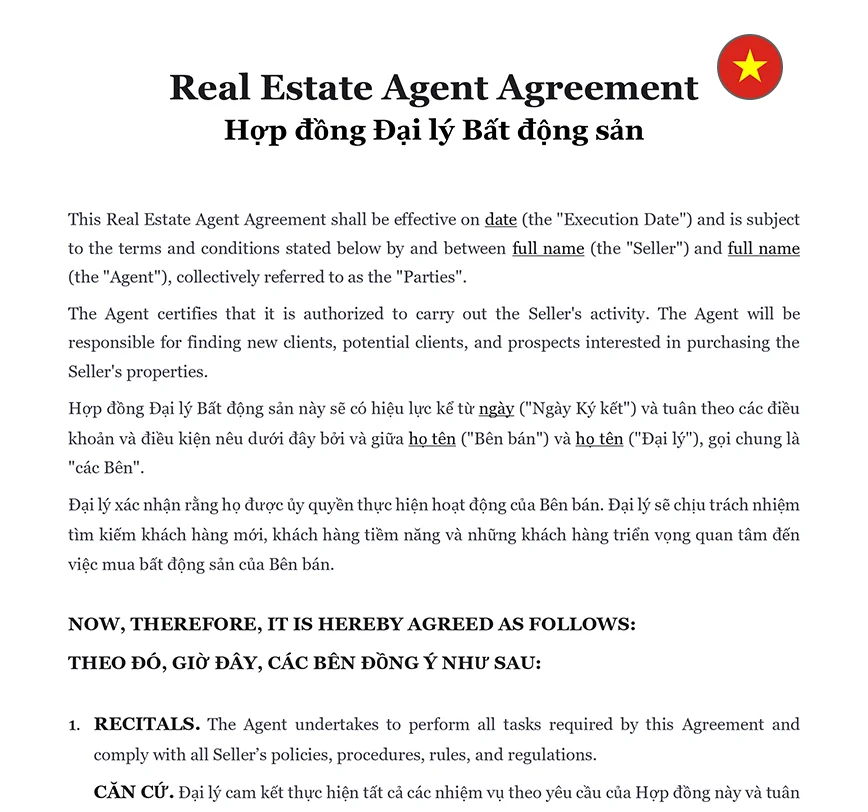Understanding the Role of a Real Estate Agent
A real estate agent in Vietnam acts as an intermediary between buyers and sellers, facilitating property transactions by providing valuable insights, market analysis, and negotiation skills. They assist in identifying suitable properties, conducting market comparisons, and ensuring all legal requirements are met. A good real estate agent will help you navigate the complexities of the Vietnamese real estate market, which can be particularly challenging for foreign investors or first-time buyers. By leveraging their local knowledge and expertise, you can make informed decisions and avoid common pitfalls.
ℹ️ Read How to Buy Real Estate in Vietnam: A Legal Guide for overall real estate insights.
Drafting a Real Estate Agent Agreement
1. Define Responsibilities: Clearly outline the responsibilities of both the real estate agent and the client. This includes the services to be provided and any specific duties expected from each party.
2. Specify Fees and Commissions: Detail the fee structure, including any commissions or additional charges. Ensure that the percentage or flat fee is clearly stated to avoid misunderstandings.
3. Set Engagement Duration: Include the duration of the agreement, specifying the start and end dates, or conditions for termination of the engagement.
4. Detail Scope of Services: Clearly describe the scope of services the agent will provide, such as property search, negotiations, and contract assistance.
5. Include Dispute Resolution Clause: Add a clause outlining how disputes will be resolved, including mediation or arbitration procedures, to handle any potential disagreements effectively.
6. Ensure Legal Compliance: Verify that the agreement complies with local Vietnamese laws and regulations to ensure it is legally binding and enforceable.
7. Review and Finalize: Thoroughly review the agreement before finalizing to ensure all terms are clear and mutually agreed upon. Use our Real Estate Agent Agreement Template to formalize your agreement with agents.
- Remarks:
For more information on drafting legal agreements, refer to the Vietnam Ministry of Construction.
Verifying Credentials When Engaging a Real Estate Agent
Before engaging a real estate agent, it is crucial to verify their credentials. Here are the steps to ensure you are dealing with a legitimate professional:
| ➤ Check Licensing and Registration: Verify if the agent is licensed and registered with the Vietnam Real Estate Association (VNREA). A licensed agent is more likely to be knowledgeable about the local market and legal requirements. |
| ➤ Request References: Ask for references from past clients to gain insights into their experience and satisfaction with the agent's services. |
| ➤ Review Track Record: Examine the agent's track record in handling similar transactions. Look for successful deals and satisfied clients. |
| ➤ Conduct a Background Check: Perform a background check to ensure the agent has no history of malpractice or legal issues. This helps in confirming the agent’s professionalism and trustworthiness. |











